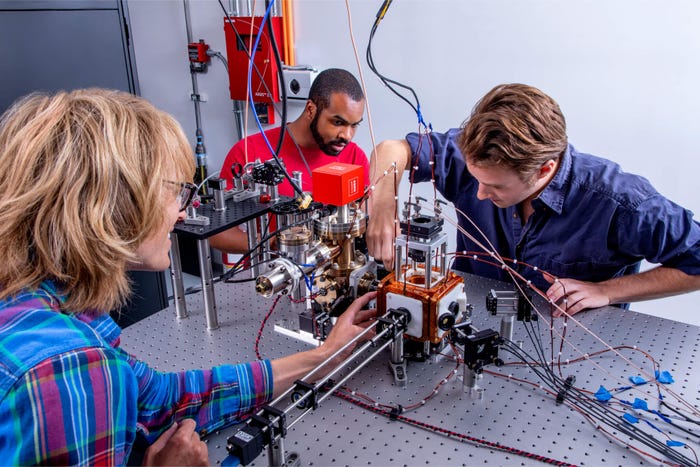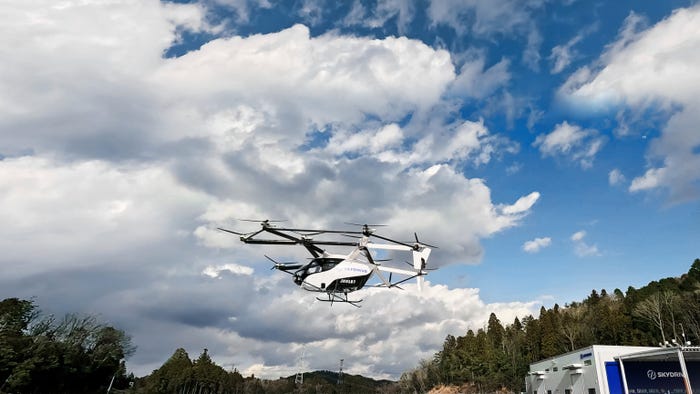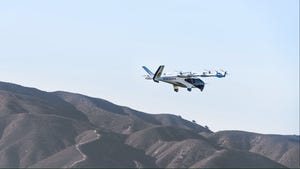Volvo Company Launches Platform to Decarbonize Smart Ships, CES 2024Volvo Company Launches Platform to Decarbonize Smart Ships, CES 2024
The Volvo Penta’s IPS Professional Platform is designed for superyachts and commercial marine vessels

Volvo Penta, a Swedish marine and industrial engine subsidiary of the Volvo Group, is unveiling its new smart platform for ships at CES 2024, taking place between Jan 9-12 in Las Vegas.
The IPS Professional platform is designed to improve the smart navigation of large vessels, assist with tasks such as docking and steering, and reduce emissions by optimizing fuel use.
The platform is the company’s first for larger consumer and commercial vessels, specifically designed for boats such as superyachts and commercial marine vessels.
The system has three main features – a flexible power drive system compatible with sustainable fuel alternatives, an assisted docking and positioning feature that helps keep the boat steady against tides and wind, and an Eco Mode feature that automatically starts/stops engines based on the power needed, optimizing fuel consumption and helping the marine industry move toward a sustainable future.
Johan Inden, Volvo Penta Marine’s president, said the platform marks the company’s next step into marine navigation and performance systems.
“With the new system, the power plant element of the boat – which can consist of up to eight combustion engines – can be replaced with electric or hybrid engines which may run on sustainable fuels or methanol or a battery pack,” said Inden. “This gives you flexibility, not only for the time in which you build the vessel but also over time as new technologies enter the market.”
As marine vessels typically have a service life of 15 to 20 years, creating a system compatible with renewable fuel alternatives is necessary to provide a level of future-proofing as the industry shifts to decarbonization.
“This is also where our electronic vessel control comes in,” said Inden. “You very rarely need power from eight engines, so this software layer enables us to switch on and off engines based on exactly the power you need, intelligently controlling the entire power plant to minimize fuel consumption and minimize wear and tear of the system.”
The assisted navigation feature is also designed to optimize power usage during tasks such as docking and steering.
“This feature helps the captain to navigate and compensate for any external sources of power to the vessel – such as a current or the wind,” said Inden. “This uses a detailed differentiated GPS signal to automatically keep the boat in the same position despite external forces.”
Both the flexible power system and the assisted navigation capabilities were available in Volvo Penta’s smaller vessels, the main leap with the IPS Professional Platform being the introduction of Eco Mode, which determines optimal engine usage based on data from fuel consumption and engine runtime.
“The intelligent Eco Mode of controlling the power plant uses an algorithm that steers the way you consume fuel and ensures users are always on the minimal path when it comes to carbon emissions,” said Inden.
The marine industry, Inden notes, is not yet looking at full autonomy given the volatile and unpredictable nature of the sea, with the emphasis being more on assistive technologies to ease a captain’s job and reduce emissions.
“The sector isn’t yet looking at full autonomy because there are a number of regulations and safety aspects that need to be considered,” he said. “We are very sensitive to always understanding the use case and the parameters of the use case before letting anything out of the hands of the captain.
“There is no silver bullet to decarbonize the marine industry. You have to build future-proof architecture where you can always apply the latest technologies to drive both decarbonization and safety. This architecture is giving us that opportunity and we think that's the path for the marine industry.”
Looking forward, Inden said the company is working to shift more toward automation, as well as increase diagnostics features of the IPS platform to provide predictive maintenance capabilities.
“Now is a very exciting period for marine technology,” said Inden. “There’s a big tech influence from the commercial side of our businesses, and there’s also so much innovation in the wider marine industry with electrification, automation, and a very high focus on efficiency.”
The IPS Professional Platform is slated for commercialization in 2025.
Read more about:
CES 2024About the Author
You May Also Like








